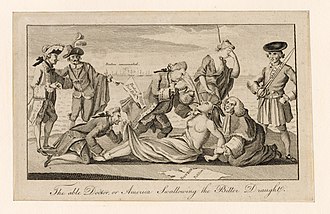
Word of the Day: Chevalier
Today’s word of the day, thanks to Anu Garg’s A.Word.A.Day at the WordGenious website, is chevalier, which is a noun that means “A chivalrous man, one having qualities of courtesy, honor, bravery, gallantry, etc.” Interestingly, Anu Garg provides two different pronunciations of the word:
- / ˌʃɛv əˈlɪər / (shev-uh–leer, with the emphasis on the third syllable)
- / ʃəˈvæl yeɪ / (shuh–val-yey, with the emphasis on the second syllable and the final –r dropped).
The first pronunciation is what we call an Anglicization of the word, pronouncing the word the English words are normally pronounced, as opposed to a more French-ish pronunciation.
According to www.etymonline.com, the word entered the English language as a common noun (as opposed to a proper noun, or someone’s name) in the “late 14c. (c. 1200 as a surname), ‘mounted knight, armed horseman of noble birth,’ from Anglo-French chivaler ‘mounted knight,’ Old French chevalier ‘knight, horseman, knight in chess’ (12c., Modern French chevaler), from Late Latin caballarius ‘horseman (source of Provençal cavallier, Spanish caballero, Portuguese cavalleiro, Italian cavaliere; see cavalier (n.)). The word was nativized in Middle English (‘chevaleer’), but has been given a French pronunciation since 16c.” In other words, the Middle English pronounced it like it was an English word, but in the 16th century, the upper classes, who all learned French, pronounced it like the French version of the word. And, of course, English also borrowed the word cavalier from Italian “cavalliere ‘mounted soldier, knight; gentleman serving as a lady’s escort,’ from Late Latin caballarius ‘horseman,’ from Vulgar Latin *caballus, the common Vulgar Latin word for ‘horse’ (and source of Italian cavallo, French cheval, Spanish caballo, Irish capall, Welsh ceffyl), displacing Latin equus (from PIE root *ekwo-).”
On this date in 1765, Great Britain enacted the first Quartering Act.
The origin of this unpleasant law was the French and Indian War (1754-1763), a war between the British Colonists and the French, who occupied modern-day Canada. Because the French population was so much smaller than the English, the French relied upon Native Americans, though there Native American tribes allied with the British as well. The war was fought along the frontier between the British lands and the French, a border which was somewhat more extensive before the war than it was afterwards.
Two years after the start of the conflict, the British and French were at war with each other in Europe, in what came to be known as the Seven-Years War, which was finally settled in 1763 with the Treaty of Paris. That treaty settled not only the dispute in Europe but the one in the New World as well. At the beginning of the French and Indian War, the British sent soldiers over to help the colonists. Sadly, at the conclusion of the war, the soldiers did not return home (curious how that still happens today). During the war, the various governors of the colonies had been happy to provide for the quartering (giving shelter and food) to the British troops, but when the war was over, the colonists could not understand why they would be expected to continue providing quarter to the troops.
General Thomas Gage, who was the commander of the British forces in the American colonies, wrote to the King regarding the refusal of the colonial legislatures to provide for his troops. He wanted Parliament to do something. And they did.
The Quartering Act dictated that British troops would be housed in American barracks or public houses, but if there were more soldiers than could be housed in these public places, other public buildings and even some private ones would be required to house the overflow. Furthermore, the colonial legislatures were required to pay for the room and board of the soldiers. The colonists, for a variety of reasons, objected to the Quartering Act, and in most states, they managed to ignore it.
There was a follow-up Quartering Act in 1774 (part of the Intolerable Acts), but it actually rejected the provision that allowed for soldiers to be billeted in private homes.
Still, the very idea that soldiers, in peacetime, no less, would be quartered in the homes and businesses of private individuals infuriated the colonists. Such quartering was so offensive that it was even addressed in the Declaration of Independence and in the Constitution. Furthermore, one wonders about the character and morals of the soldiers who would force themselves into someone’s home and consumed their food while expecting the citizens to pay for it all.
I would say that no chevalier would ever do such a thing.
The image is a “Patriot cartoon depicting the Coercive Acts as the forcing of tea on a Native American woman (a symbol of the American colonies) was copied and distributed in the Thirteen Colonies.”